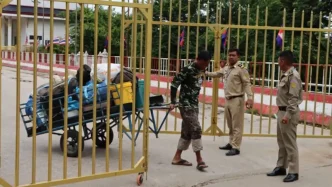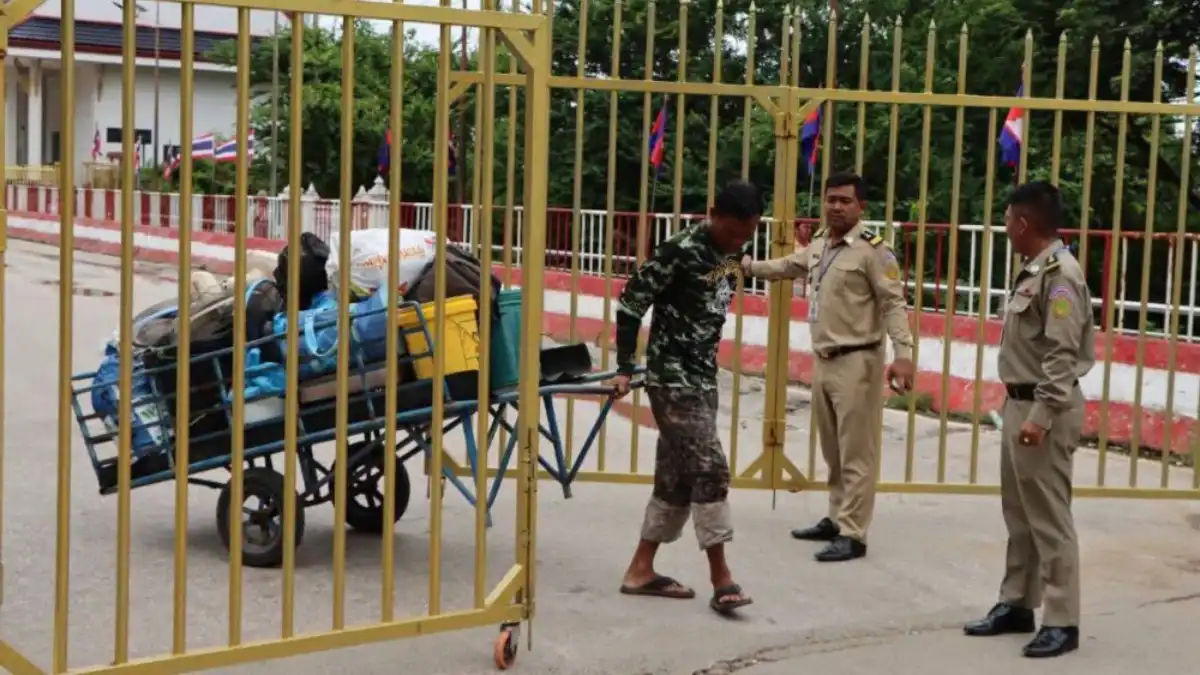Tensions between Cambodia and Thailand have intensified following Cambodia’s decision to ban all cargo transport through international and regional border checkpoints along their shared border. The move, announced by Cambodia’s General Department of Immigration (GDI) on June 29, 2025, comes in response to Thailand’s unilateral closure of several border crossings since June 7, exacerbating a diplomatic standoff with significant economic and political implications for both nations.
Border Shutdowns and Retaliatory Measures
The Cambodian government’s latest directive, issued under the authority of Prime Minister Hun Manet, halts all entry, exit, and transit of cargo at checkpoints along the Cambodian-Thai border. According to a GDI statement, this measure will remain in place until Thailand fully reopens all affected border crossings to their pre-June 7 status. The statement emphasized that the closures, initiated by Thai authorities, have disrupted normal operations and prompted Cambodia to take a firm stance.
Thailand’s closures, which began on June 7 and were reinforced on June 23, were ordered by Thai Prime Minister Paetongtarn Shinawatra. The Thai government cited the need to curb online scam operations and cross-border crimes as the rationale for restricting access in seven provinces, with exceptions made only for medical patients and students. However, the sweeping nature of the closures, including at key crossings like Poipet, has drawn sharp criticism from Cambodian officials who view the actions as disproportionate and unilateral.
In retaliation, Cambodia had already imposed bans on the import of Thai fruits and vegetables, alongside suspending oil and gas imports from Thailand. These earlier measures, described by Cambodian authorities as responses to unspecified “threats” from Thailand, set the stage for the latest cargo ban, which further tightens the economic vise on cross-border trade. The Poipet crossing, a vital artery for goods and people between the two countries, has become a focal point of the dispute, with both sides refusing to yield.
Diplomatic Stalemate and Calls for Resolution
Prime Minister Hun Manet has publicly challenged Thai authorities to address the closures internally, urging them to engage with “those with real authority” in Thailand—whether military or otherwise—to restore normalcy at the border. In a social media post on June 29, he stated, “If Thai authorities and Thai citizens wish to see the Cambodian-Thai border checkpoints reopened, there is no need to request Cambodia. Please request those with real authority in Thailand to restore the border checkpoints to their normal state as before June 7, and provide clear assurances that there will be no further unilateral closures or openings. That will resolve the matter.”
This pointed remark highlights a deeper frustration within the Cambodian leadership over what they perceive as a lack of clarity and coordination on the Thai side. Hun Manet’s reference to “real authority” may also signal underlying tensions regarding the influence of Thailand’s military in border and security policies, a sensitive issue given Thailand’s history of military involvement in governance.
On the same day, Thailand’s Burapha Armed Forces requested permission from the immigration office in Sa Kaeo province to allow cargo transport through specific checkpoints. However, this request appears to have been rebuffed or deemed insufficient by Cambodian officials, who insist on a comprehensive reopening of all crossings rather than piecemeal concessions.
Economic Fallout and Regional Impact
The border closures and subsequent cargo ban are already casting a long shadow over the economies of both nations, particularly in border regions reliant on trade. The Poipet crossing alone facilitates millions of dollars in goods annually, from agricultural products to industrial materials. Local businesses on both sides are feeling the pinch, with Cambodian exporters unable to ship goods to Thai markets and Thai suppliers cut off from Cambodian consumers.
Estimates suggest that daily trade losses could run into hundreds of thousands of dollars. For instance, a single shipment of goods valued at 3,500 Thai Baht (US$98) per consignment—a common figure for small traders—represents a significant loss when multiplied across hundreds of stalled transactions. While exact figures remain fluid, the economic toll is undeniable, especially for small-scale vendors and farmers who lack the resources to absorb prolonged disruptions.
Beyond immediate trade losses, the standoff risks broader regional implications. Cambodia and Thailand are key players in the Greater Mekong Subregion, and their border serves as a critical link in supply chains connecting Southeast Asia. Prolonged closures could disrupt logistics for neighboring countries like Laos and Vietnam, which rely on overland routes through Thailand and Cambodia for goods and transit. Analysts warn that if the situation escalates, it could undermine regional cooperation efforts under frameworks like ASEAN, where both nations are active members.
Historical Context and Underlying Tensions
The current border dispute is not an isolated incident but rather a manifestation of longstanding frictions between Cambodia and Thailand. The two nations share a complex history marked by territorial disputes, most notably over the Preah Vihear Temple, a UNESCO World Heritage site that has been a flashpoint for military skirmishes as recently as 2011. While the current conflict centers on trade and security rather than territory, it reflects a persistent mistrust that colors bilateral relations.
Thailand’s stated rationale for the closures—combating online scams and cross-border crime—touches on a real and pressing issue in the region. Poipet, in particular, has gained notoriety as a hub for illegal activities, including human trafficking and cybercrime syndicates that exploit lax border controls. Thai authorities have repeatedly expressed concerns over scam operations based in Cambodia targeting Thai citizens, a problem that has gained international attention. However, Cambodia has countered that such issues require joint cooperation rather than unilateral actions that penalize legitimate trade and travel.
Political dynamics within both countries add another layer of complexity. In Thailand, Prime Minister Paetongtarn Shinawatra, who assumed office in 2024 as the latest member of the influential Shinawatra family to lead the nation, faces domestic pressure to demonstrate a tough stance on security. Meanwhile, in Cambodia, Prime Minister Hun Manet, who succeeded his father Hun Sen in 2023, is navigating his own challenges in asserting authority while maintaining stability in a country long dominated by a single ruling party. For both leaders, the border issue serves as a test of their ability to balance national interests with diplomatic pragmatism.
Public Sentiment and Humanitarian Concerns
On the ground, the closures have sparked frustration among border communities who rely on cross-border movement for their livelihoods. Cambodian and Thai citizens alike have voiced concerns over the impact on daily life, from delayed shipments of essential goods to restricted access for workers and students. Social media platforms have become a sounding board for grievances, with many users in both countries calling for swift resolution to avoid further hardship.
Humanitarian considerations also loom large. While Thailand has made exceptions for medical patients and students, the broader restrictions have left some vulnerable groups stranded or unable to access critical services. Reports of families separated by the closures underscore the human cost of the dispute, even as both governments focus on strategic and economic priorities.
Path Forward Remains Uncertain
As the standoff drags on, the path to resolution remains unclear. Neither side appears willing to make significant concessions without assurances of reciprocity, and the involvement of military and security actors in Thailand adds an unpredictable element to negotiations. International observers, including ASEAN partners, have called for dialogue to prevent further escalation, but no formal mediation efforts have been announced as of yet.
For now, businesses, residents, and policymakers on both sides of the border are left in limbo, grappling with the immediate fallout of a dispute that shows no signs of abating. As Cambodia holds firm on its cargo ban and Thailand maintains its security-driven closures, the question remains whether pragmatic cooperation can prevail over entrenched mistrust. The coming weeks will likely test the resilience of Cambodia-Thailand relations—and the patience of those caught in the crossfire.















